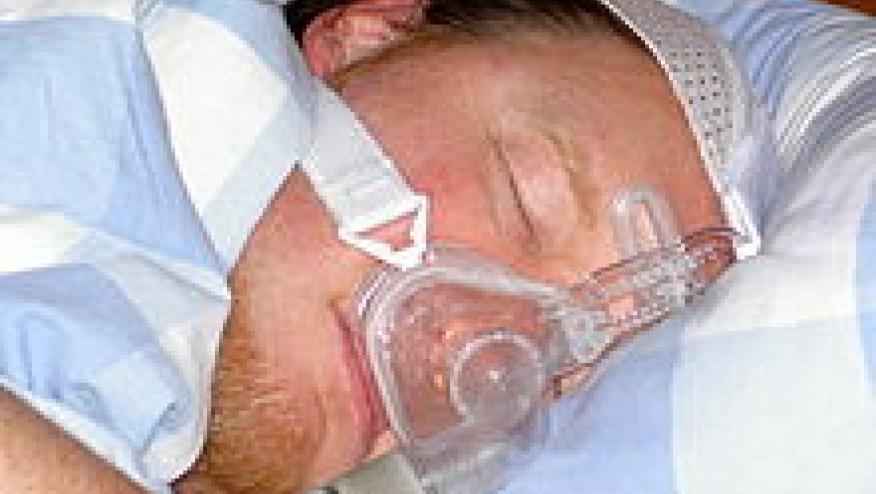CPAP Use Fails to Prevent CV Events in Sleep Apnea Patients Save

There are numerous health hazards associated with obstructive sleep apnea (OSA), including an increased risk of cardiovascular events.
Despite efforts to make an early diagnosis and intervene with continuous positive airway pressure (CPAP), it is unknown if CPAP prevents major cardiovascular events (CVE).
Adults (n=2717) with moderate-to-severe OSA and coronary or cerebrovascular disease were randomly assigned to receive CPAP treatment plus usual care (CPAP group), or usual care alone (usual-care group).
The primary endpoint was death from cardiovascular causes, myocardial infarction, stroke, or hospitalization for unstable angina, heart failure, or transient ischemic attack.
Most of the participants were men with a mean duration of adherence to CPAP therapy of 3.3 hours per night, while the mean apnea–hypopnea index decreased from 29.0 events per hour at baseline to 3.7 events per hour during follow-up.
After a mean follow-up of 3.7 years, there was no protective effect of CPAP on CVE.
The CPAP group and usual care group had 17% and 15.4% CV events (CPAP HZ = 1.10; 95% confidence interval, 0.91 to 1.32; P=0.34).
Although CPAP significantly reduced snoring, daytime sleepiness and HR-QOL, there were no other significant benefits to any of other end point analyzed.
Therapy with CPAP plus usual care did not prevent cardiovascular events in patients with moderate-to-severe obstructive sleep apnea and established cardiovascular disease.










If you are a health practitioner, you may Login/Register to comment.
Due to the nature of these comment forums, only health practitioners are allowed to comment at this time.